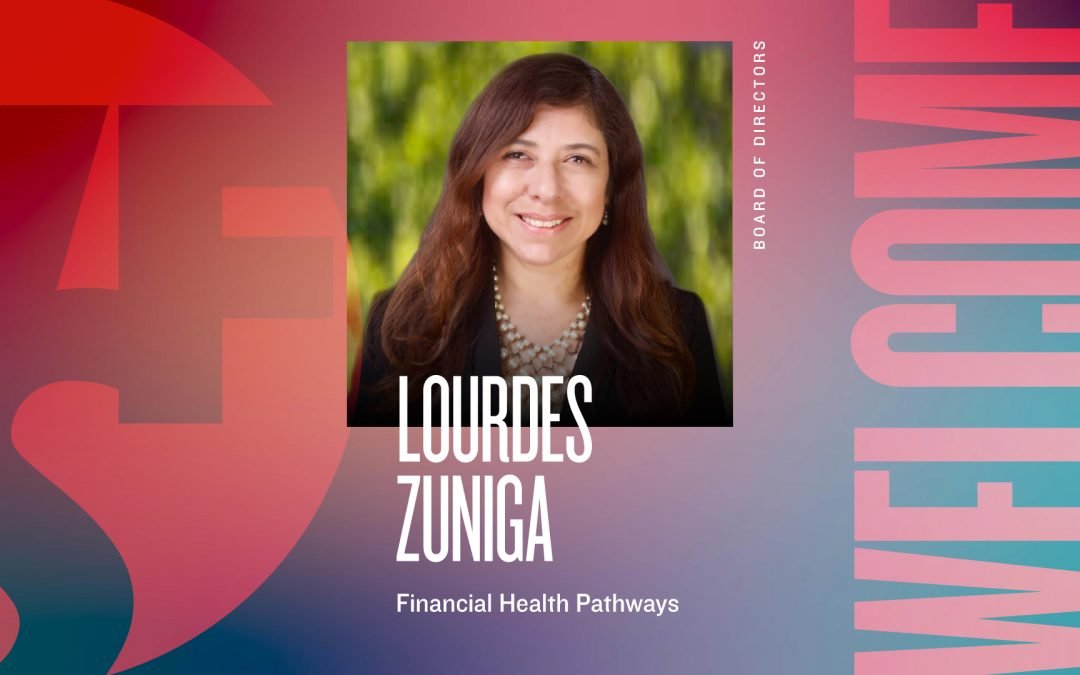Workforce Solutions Capital Area is the non-profit organization that serves to lead and govern the Austin/Travis County area workforce system. In this role, we are responsible for the planning, oversight, and evaluation of workforce development activities in the Capital Area. Simply put, we connect local people — youth and adults — to the most in-demand industries with quality jobs.
To help us bridge our region’s skills gap, we are excited to welcome Lourdes Zuniga to our board of directors. Lourdes currently serves as executive director and founder of Financial Health Pathways.
Get to know Lourdes in our Q&A below, and connect with her on LinkedIn to see her extensive experience in economic empowerment, philanthropy, and education.
Q: Where is your hometown?
A: Lima, Peru
Q: How did you first become involved with Workforce Solutions Capital Area (WFS)?
A: As an active community leader working on poverty issues through my nonprofit Financial Health Pathways, I have seen the work WFS does in the community and how they equip our residents to achieve their full potential. We both worked together in bringing knowledge, life skills and training to low-income communities, and that alignment has grown stronger over the years.
Q: How is WFS a go-to resource for employers in Austin?
A: WFS puts an incredible effort in building intentional relationships with Austin employers so that they can not only identify their needs but supply them with the best local human capital. That level of commitment to the Austin community is what makes WFS a great resource, a great partner and a great asset to the community.
Q: What is the value of connecting local people to local jobs?
A: We have a great economy here in Texas, and it is our duty to ensure all our residents can benefit from the wealth and resources we have in the state. Connecting our local talent to local, in-demand jobs not only benefits employers but also improves the quality of life of our residents and the community as a whole.
Q: How does upskilling benefit your industry?
A: The social sector has been critical, particularly during the Covid-19 pandemic. When government and corporations were struggling, it was the social sector that tripled their operations and delivery of services. So, it is important to have skilled professionals who are capable of redesigning strategies and implementing and executing systems of care for the ever-changing needs in our community.
Q: How does your organization support growing Austin’s workforce through local education programs and schools?
A: We serve as ambassadors for WFS and support the work they are doing in the schools, showing students the potential and the opportunity. Financial Health Pathways creates awareness about those innovative approaches and serves as connectors between WFS and the community.
Q: How has skills training helped you develop your career?
A: In every field, it is important to continuously improve our skills. I am a forever learner, so I actively seek learning opportunities that make me a better professional and also help me stay relevant. Updating knowledge and skills has been critical to innovate and succeed in my career, so it has definitely been a practice I follow and embrace.
BONUS QUESTIONS
Q: What does your ideal day in the Austin area look like?
A: I love going to Mozart’s by the lake. It reminds me of my years living in Lima. I also love eating out in local restaurants. Our city has such diverse and rich variety of restaurants. It’s almost like an invitation to explore the city every weekend.
Q: Is a hot dog a sandwich?
A: Its a sandwich. And a delicious one!!!
Q: Which famous person do you look up to, and why?
A: I think Jesus and Mother Teresa are definitely the people I look up to. I aim to have their leadership skills and humility. It is easy to lose sense of why we do what we do, and when that happens, I turn to them and how they led. Their strength during difficult times showed me that it is possible to stay true to your values even under distress, but it takes a great deal of discipline, focus and commitment.
Q: If you could give a piece of advice to your younger self, what would it be?
A: The most important thing is not that people believe in you, it is that you believe in yourself.

